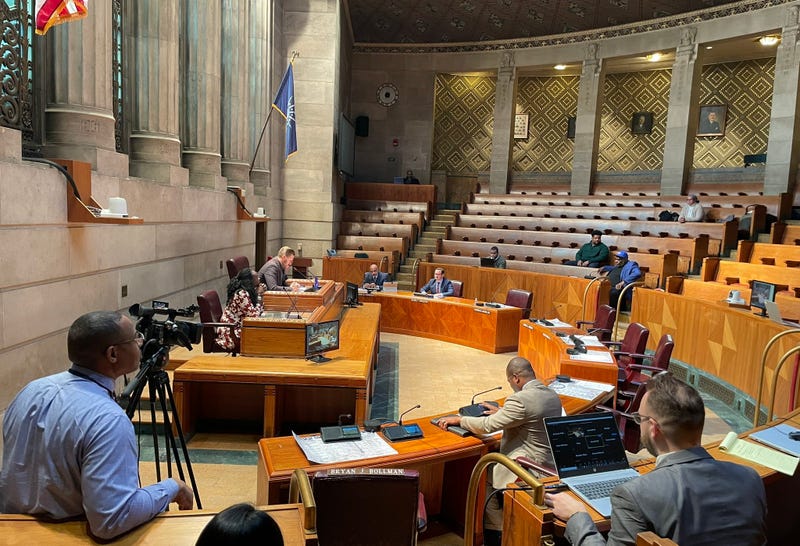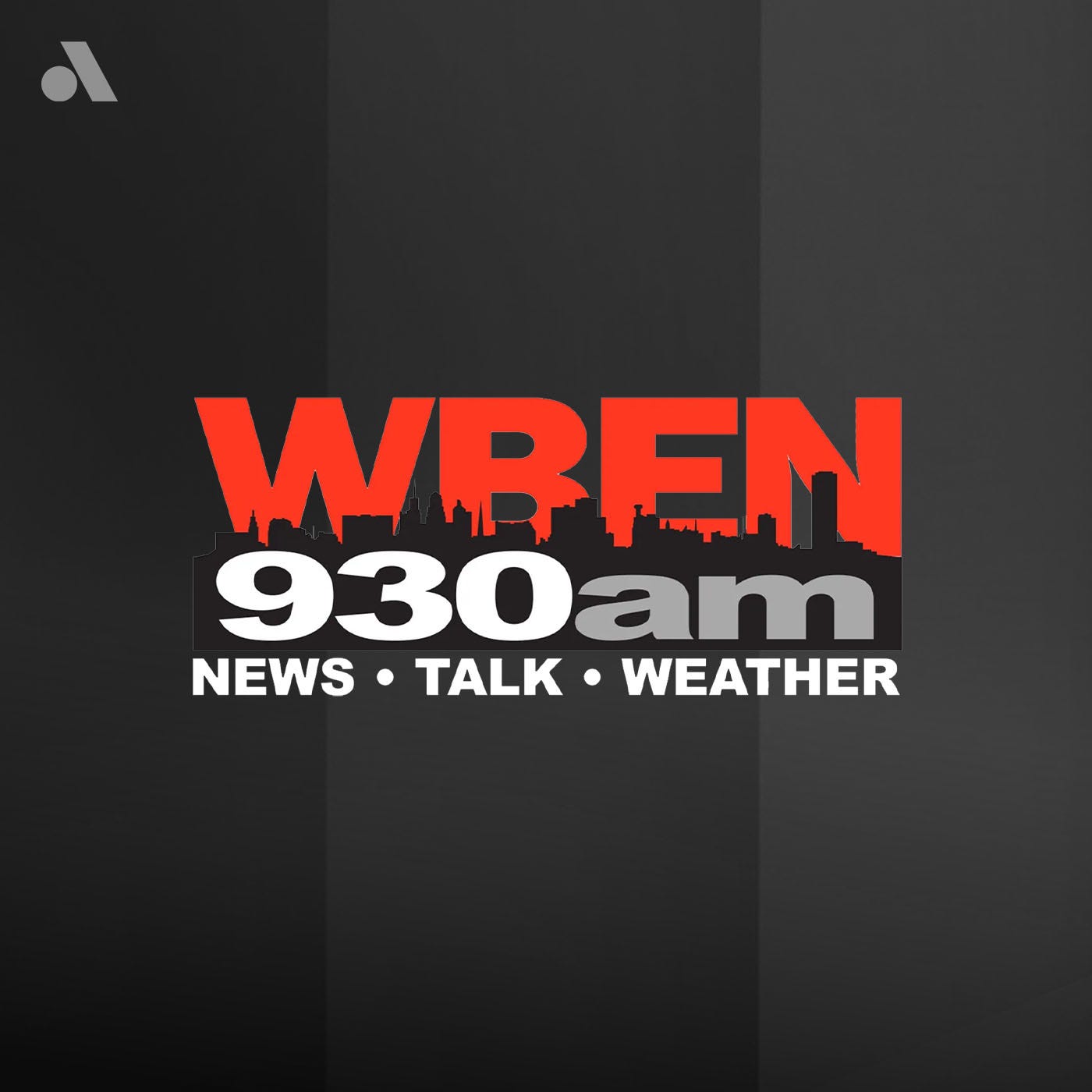
Buffalo, N.Y. (WBEN) - Talks continue regarding the concerns over transportation issues for the Buffalo Public School District, and how to properly address not only the shortage of bus drivers, but also getting kids to school safely and on time.
During Tuesday's Buffalo Common Council Educational Committee session, councilmembers, community activists and others discussed some of the pressing matters at-hand and a need to find a resolution to the transportation crisis that is affecting many students of the district.

"I just want to make it clear, we are very concerned about this, and we wanted to be clear in our stance," said Councilman Rasheed Wyatt during Tuesday's session. "Many of these children are in our community, many of them are not getting the necessary courses and things that they need because of inequity, in some cases, and we just want everyone to work together. I mean, when we talk about making sure that children get a world-class education, it takes all of us. And how our school system goes is how our city goes, so this is paramount for us, and we're asking everyone to come together and put the children first. That's what it's all about. It's not about any political group, about any particular group of people, it's about the children. And at the end of the day, when we keep the children first, we can come to a resolution. It's just making sure it's children-focused."
Tuesday's resolution of discussion surrounding the transportation crisis came from Wyatt, and was sponsored by other councilmembers including Council President Darius Pridgen, Education Committee Chair Bryan Bollman, and Councilman Mitch Nowakowski.
As part of the resolution on the agenda, it calls for the Buffalo Common Council to hold an urgent deliberation between the Buffalo School Board, Buffalo Teachers Federation and the community to resolve the transportation issues by whatever means appropriate to begin the educational recovery for children and their families across Buffalo.
"When a child is out there in the cold, especially in Buffalo with winds, and some of them may not have adequate coats and shoes and boots and those type of things, they're at risk. So we have to take that into consideration," Wyatt said. "We can't think that every child has coats and boots and all those things, some of them may not have eaten. There's a whole lot of things that go into what impacts our children. So we want to take this one off the table. They should be being picked up, they should be transported to where they need to go to get the extra courses that they need. During the pandemic, they needed some additional resources to bring them back on par. Those are all critical things, and for them not to get it, they fall further behind. So this is an important conversation"
While the Buffalo Common Council does not have a vote in this matter, councilmembers have been wanting to use their voices to express their concerns for how the transportation matters affect many of their constituents.
Where discussions were a bit spirited on Tuesday started when councilmembers brought up some people delivering backlash to their response to trying to provide answers and solutions to the matter. This includes the formulation of a new three-bell systems that would see students starting school earlier, being able to get to school in a timely fashion, and also get home sooner than some times with the current system.
"I think at the end of the day - because I'm not interested in somebody asking me 'Why I'm using my voice?' or 'Why are you all doing such-and-such?' - all we're asking for is let's work together to get our greatest commodity, our children, educated, and to get them on track after having years of not being in school," said Council President Pridgen." We know it's national problem, we know that, but a national problem does not mean that a local municipality should not try to solve it. We should be the problem solvers, and at the end of the day, that's all this resolution calls for. It is not anti-union, it is not against the teachers, it is not against the administration. It's for the children, period."
Among those in attendance for Tuesday's Education Committee session in council chambers included community activists who are in favor of addressing the district's transportation problems, and resolve the matter in a swift and equitable way.
"What we're here to do is to say right now, in the City of Buffalo - this council represents every constituent - there is a serious inequity going on for children. When I say children, I'm talking about some of the poorest children in the United States of America, who have to catch the bus to school. They are not able to get a full day of instruction," said Sam Radford, co-chair for the Buffalo Education and Equity Task Force.
According to data, there are approximately 12,000-13,000 students every day who don't get a full day of instruction at Buffalo Public Schools. Radford points out if a student has the privilege of a parent taking them t0-and-from school or they live close enough to walk to school, they are most likely to have a full day of instruction. However, there are those children who are not so fortunate to have a solid solution to get to school, which has resulted in shorter days of instruction, no access to after school programs, or no access to activities such as sports.
Where Radford has the most concern with the transportation issues is the fact Superintendent Dr. Tonja Williams has proposed a solution to the matter, and there has been pushback from groups like the Buffalo Teachers Federation. All Radford is asking for is if that solution isn't the answer, somebody else needs to come up with a solution.
"The only thing that we feel is unacceptable is for us to continue to watch our most vulnerable children fall further behind, and everybody who's not falling behind, which is most of the decision makers - don't live in the City of Buffalo," he said. "In this case, the teachers, don't live in the City of Buffalo, they're not impacted the same way. Most of the decision makers' children are not affected by this. The most vulnerable parents are the ones affected by this, and their voice is the one that will not factor in, and therefore, they're not getting their needs met. And our prayer is that you can be helpful in the process of meeting that need."
"The three-bell schedule is on the table, it is an option. We've not heard any other options, but we are open. Let's hear other options, let's offer solutions," added Rev. Kinzer Pointer, who spoke during Tuesday's session via Zoom. "As an activist in Buffalo Public Schools education for more than 30 years, it is just really tiresome that people of privilege will suggest that the poor and the ultra poor don't want their children to arrive at school, don't want them to have the basics that every other student in Erie County have, that they do not have. And then to leave children standing on bus stops in the early hours of the morning - often before 6:30 a.m. - and getting students home well after the dinner hour. What we need are solutions, and if you're not offering any, please don't add anything to the conversation. But bring solutions, and let's figure out how we adults can do better by these students."
In the end, the item on the agenda was tabled by the Education Committee for a later date.
When it comes to the Buffalo Teachers Federation's standpoint, the one thing the union believes should be the No. 1 focus, at this time, is the lack of bus drivers.
"Until we solve that, nothing is going to really change. It might get worse next year, and then have to make changes next year," said BTF President Phil Rumore. "[What] we have to do is everybody has to come together and say, 'Well, the root of the problem is the lack of bus drivers. What do we do to correct that situation? And how do we hold the bus company responsible for not being able to provide the buses?'"
When it comes to the three-bell system that the BTF has fought against in the school district, Rumore says the union has heard from a large number of parents and others with concerns on the matter.
"They say, 'If I have kids [that] are in an early school, two different early schools, and one moves to a later school, how am I going to arrange my healthcare?' So there were a lot of problems with it," he said. "The bottom line is, their original MOU was voted down overwhelmingly by close to 90% of our teachers, and we sent the superintendent then a letter indicating the problems and some of the concerns that we and parents had with it. To this date, we haven't received a response."
When it comes to the potential for a trial and error period with finding a solution to the transportation problem, with the potential of utilizing the three-bell system, Rumore feels they'd have to have the involvement of everyone, including parents at the schools, before agreeing to sign off on any decision.
"I've heard from parents at the schools that say, 'I don't want this. I can't change my childcare.' And they have more of a difficulty than anybody," Rumore said. "I think what it is is, first of all, we've heard from the district who's said, 'I don't think anybody really believes that it can get done this year, this academic here. It's too short of notice, and it's too much to get people to change.' But the bottom line also is that we have sent a district our concerns back in December. We have still not had a response to those concerns. And we are also part of a committee that has been meeting to try to resolve the issue."
As for other pressing needs with the proposed three-bell system, Rumore says people need enough time to be able rearrange their schedules for their childcare, as well as a need to know the proper timing of it all.
"There's just a lot of those kinds of issues, but basically they revolve around how to accommodate childcare, and having enough time to do that, especially if you have your multiple children that are starting at the same time now and then they change it. You can't change things like that," Rumore said. "And let's face it, the district and everybody's known about this problem for over a year."


